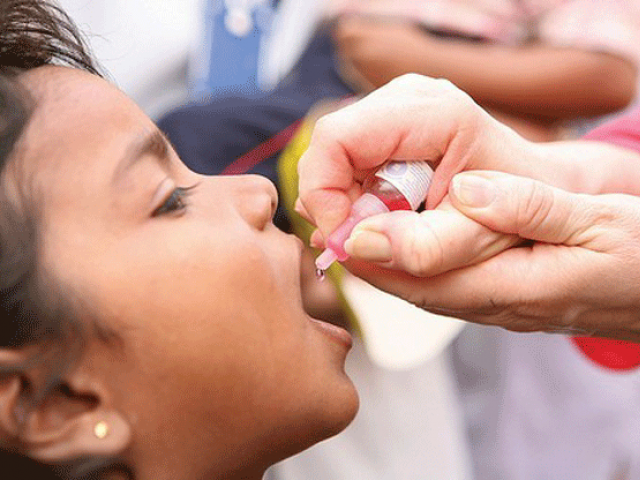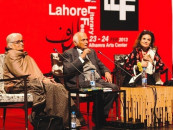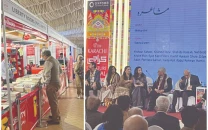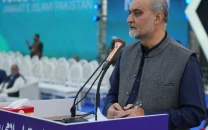Polio eradication: Concerted efforts needed to eliminate virus
The report recognises transformative improvement compared to three years ago

The report recognises transformative improvement compared to three years ago.
PHOTO: FILE
This was the crux of the International Monitoring Board (IMB) report on Polio eradication in Pakistan, an international polio watchdog, which seeks to eliminate the virus globally which was released on Thursday.
The report has recognised the major achievements the nation has achieved in its effort- which has seen a transformative improvement compared to three years ago.
Notwithstanding, the report also details the major concerns to achieving this goal.
The IMB was convened in November 2010 at the request of the World Health Assembly to monitor and guide the progress of the Global Polio Eradication Initiative’s 2010-2012 Strategic Plan. The IMB releases quarterly reports to provide a transparent external assessment of the progress being made towards polio eradication.
The latest report titled ‘Polio will not end everywhere until everywhere ends it’ released after the 13th meeting of the IMB held on July 20-21.
The report enumerates a 59 per cent reduction in cases as a result of the yearly improvements.
The report states that there has been a reduction in the proportion of polio positive environmental samples, an overall increase in campaign quality and, a reduction in the proportion of missed children.
However, they have voiced their concern in reaching the goal of interrupting transmission in 2016 without further intensified efforts.
The report elucidated that “In Pakistan, the political leadership in Northern Sindh is not fully engaged and aligned with the urgency of the situation; as a result, many observers believe that this could be the last place in the world where the polio virus exists”.
It further highlighted that in Karachi there is a core group of families that persistently refuse the vaccine.
Moreover, the programme in Karachi needs to embrace the practices of programmatic excellence that have eliminated the polio virus elsewhere.
The IMB details that “Abrupt changes to crucial senior personnel have imposed unnecessary further difficulties leaving a vacuum in vital leadership roles, and making an inexplicably friendly gesture to the poliovirus”.
In addition, the report implores the Global Polio Eradication Initiative (GPEI) leadership with the collaboration of the government to intervene to urgently engage the political leadership in Northern Sindh to establish a clear commitment and ownership of the goals of the Polio Programme by September.
The report also shows concerns over the level of joint working between the governments of Pakistan and Afghanistan that required interrupting polio transmission in the border areas and from the large reservoirs of infection that span the two countries.
“They are in need of politically neutral help in moving to a higher level of joint working,” it stresses.
The board was stunned by the outbreak of wild poliovirus in Bannu, Pakistan in April and May as it seemed to be well protected.
There is a recommendation to have more structured systems of soft intelligence to identify places where official monitoring data shows a ‘too good to be true’ situation- as the programme cannot afford ‘more Bannus’.
The report states that the country still has four core reservoirs which include Khyber-Pakhtunkhwa (K-P), FATA, Sindh, and Balochistan.
The poliovirus has traditionally been a passenger within population flows across the borders between Pakistan and Afghanistan, and it has moved freely in and out of these big reservoirs of infection.
The report recommends appointing a very high-level GPEI leader to strengthen the cohesiveness of the joint working of the Pakistan and Afghanistan governments.
Pakistan is committed to addressing the remaining challenges and ending polio transmission in Pakistan in 2016, said Minister for National Health Services Saira Afzal Tarar.
“The IMB has recognised how far Pakistan has come which is clearly due to the strong political will and commitment shown by the country’s leadership which has trickled down to all levels of responsibility and effected change. We must commit ourselves to nothing less than leaving no child unvaccinated and vulnerable to this crippling virus,” she said.
Published in The Express Tribune, August 26th, 2016.



















COMMENTS
Comments are moderated and generally will be posted if they are on-topic and not abusive.
For more information, please see our Comments FAQ